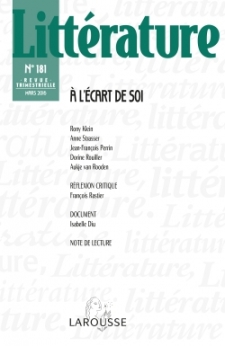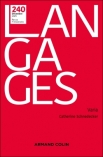
Littérature n° 181 (1/2016)
Pour acheter ce numéro, contactez-nous
Recevez les numéros de l'année en cours et accédez à l'intégralité des articles en ligne.
Comment l’écrivain autobiographe, forcément conscient qu’il peut, par ce qu’il raconte, gêner, révolter, blesser ses proches, arbitre-t-il sa liberté d’expression et la vie privée d’êtres auxquels il est lié ou a été lié par des sentiments souvent très intimes ? Certes, le choix auquel il doit se livrer comporte un incontestable enjeu moral qu’il envisage avec ses propres valeurs, mais il y a aussi un enjeu littéraire crucial, qui peut parfois se résumer à l’alternative écrire ou ne pas écrire, autant dire pour certains écrivains, une question de vie ou de mort.
How does the autobiography writer, who inevitably knows they can bother, outrage or hurt their relatives because of what they tell, achieve balance between their freedom of speech and the private life of people to whom they are (or used to be) bound by sometimes very intimate feelings ? Admittedly, the choice they have to make entails undeniable moral stakes they contemplate with their own values, but there also are crucial literary stakes that can sometimes come down to the alternative between writing and not writing, in other words, for some writers, a matter of life and death.

